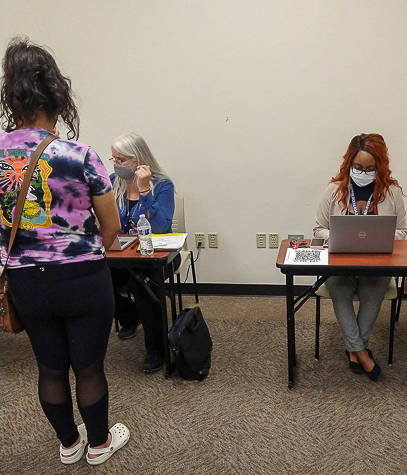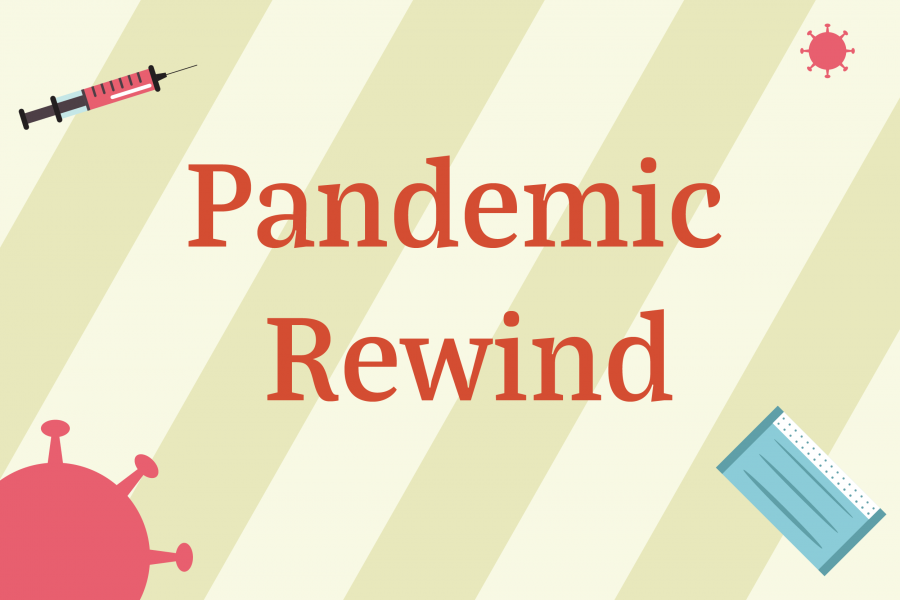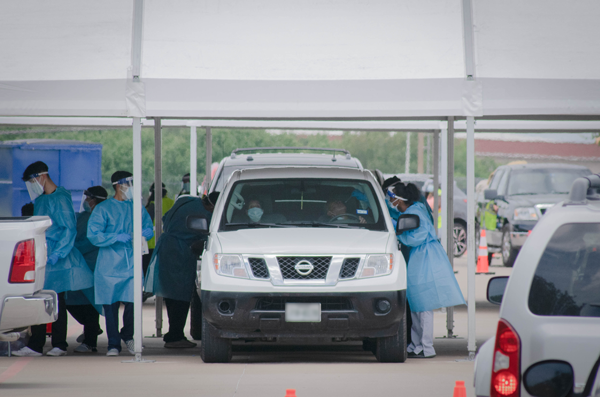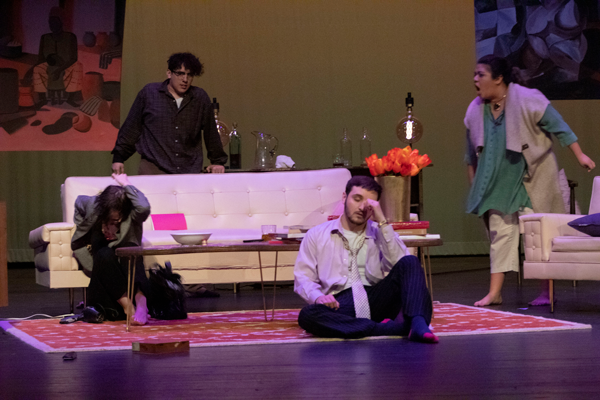
By Lindsey Craft
@LindseycraftETC
Editor’s note: This report on the Arts and Communications programs is part of an on-going series by The Et Cetera on how campus departments are handling the switch to online classes and will be updated as more information becomes available.
[April 1, 10:28 p.m.] Drama professor Dusty Reasons Thomas has been working on alternative activities for students to stay engaged with one another following the switch to an online-only basis.
She has been talking to OSER about doing a virtual “Eastfield’s Got Talent.” She also wants to put together creative drama classes online for students and faculty members who have kids to keep them occupied during the day.
“It’s devastating because we work all semester on these projects and then all of them got canceled,” she said. “I just feel for all of the people who put a lot of work into things only to have them be canceled or postponed.”
[READ MORE: 3 DCCCD students self-report positive COVID-19 test or exposure to virus]
During this time Thomas encourages students and faculty to stick together, keep trying to do their best and not give up on the semester.
Communications
[April 1, 10:28 p.m.] Communications program coordinator Lori Dann said her two reporting classes, media writing and news reporting, have been impacted because the students generally cover news and events on campus.
Dann said she will continue to partner with The Et Cetera in order to give students the hands-on experience that is vital for them to learn journalism.
“Unfortunately, we have had to postpone a data journalism project that we had already started with a local professional news organization,” Dann said. “Our news photography class also faces a challenge because of the shelter-in-place order. As faculty members, we are trying to find ways to collaborate and get creative so our students can still cover what is basically the biggest news story of their lives.”

Dance
[April 1, 10:28 p.m.] Dance program coordinator Danielle Georgiou said aside from her dance appreciation course, the challenge is determining how instructors will offer dance technique courses online such as ballet, performance and choreography, modern dance, jazz and body conditioning.
Georgiou has been preparing video lectures, online classes and at-home movement analyses and experiments for dance students.
She is also compiling a collection of dance films and recorded live performances for all dance students to access that will help them work on their critical thinking and qualitative skills.
Georgiou has taught lecture-based and theory courses online for years, but said never fathomed a world in which she would be teaching movement digitally.
“It’s overwhelming to the point that while I am eating up everyone’s advice and methodologies, I myself am stuck trying to find the energy to create the best classes so that the technique and practice that my students and I have been developing for the past 8 weeks won’t suffer,” she said. “I am constantly worrying about how to transition these classes online, how to give students the best experience from a distance and how to motivate them to keep moving and dancing.”
[READ MORE: Campus coronavirus updates: Student services]
Dance instructors are having students write critical analyses of the works and communicate their finds through both written, oral and visual communication which is something that instructors do not want to disappear during this time.
She said instructor Robert Alvarez, who teaches the body conditioning course, is developing a video database for students of house training and work-out videos. These include Zumba, dance fitness classes, yoga and strength building classes.
The course normally focused on the ideas of fitness, conditioning and flexibility so Alvarez will continue those lessons virtually.
“It’s a short turnover and we never planned or expected to teach this way,” Georgiou said. “There are large learning curves such as the use of certain interfaces and technology, but as long as we remain patient, and so do the students, we will be OK.”
She said the main concern she has heard from students is that they can’t see each other or be in the studio with the faculty.
“We all just miss each other,” she said. “Dance is a special case in regard to education as we quickly bond and become connected to one another through the sharing of movement and physical space. Transition to a digital space will be interesting, but they all seem excited to get back to dance in some form or another.”
Digital Media
[April 1, 10:28 p.m.] Digital media program coordinator Oslynn Williams said that this has been a smooth transition for the professors in the department since they already had a setup for students to get an online experience.
“Even in my face-to-face classes my students are used to working online,” Williams said. “The only obstacle was making sure some of our early college students as well as our traditional college students had a computer and internet at home.”
There have been a few students who have expressed concerns regarding the lack of internet or computer.
Williams is working with the IT department to assist these students. He is also sending these students a list of resources with companies providing free internet and places where students can obtain a computer.
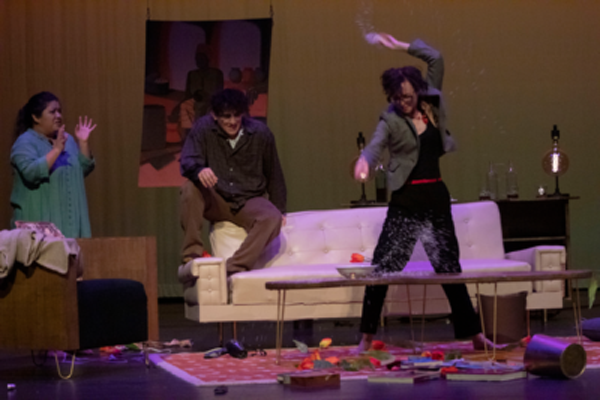
Drama
[April 1, 10:28 p.m.] Thomas has taught courses such as introduction to cinema and introduction to theatre online for years. But the challenge she faces now lies with transitioning her acting and makeup artistry classes to online.
Thomas said it’s difficult for her acting class because they were supposed to put together a production and critique a live play. The production has been canceled due to the campus shut down and venues across the metroplex are closed.
“We’re getting creative and making it work,” Thomas said. “I don’t want anyone to feel like they got cheated by completely doing an online class.”
Thomas will have her acting students record their performances and send them to her using the Marco Polo app where she can view and send video feedback to them immediately.
[READ MORE: Campus coronavirus updates: Career and technical classes]
Thomas is worried that students will feel isolated in this process and will quit participating.
“I teach online classes every semester and students will respond to the first discussion board and then never return,” she said. “I’m worried about students that originally signed up for face-to-face classes struggling with online and stop participating because they don’t get instant gratification or there’s no motivation to keep them going.”
Another challenge that Thomas and other instructors are facing is the K Building daycare being closed. Instructors are now having to juggle teaching their own children from home and their online students.
“I used to have all this time to myself to focus on my students and that’s the biggest thing that I’m worried about now,” she said. “I’m teaching five classes so it can be challenging to focus on all of those classes when I don’t have a lot of time to myself.”
[READ MORE: Campus coronavirus updates: STEM courses]
English
[April 1, 10:28 p.m.] One of English professor Caitlin Stanford Kintner’s main concerns is for her older students who are not as tech-savvy as her younger ones. She said she is working hard to keep in close contact with everyone in class and keep them in contact with each other as well to help one another.
She is having her class meet via google hangouts to ensure they remain closely connected.
“Being isolated is hard on mental health, so communication is going to be key,” Kintner said.
She said there is also the issue of instructors teaching online for the first time and that this will be a learning experience for everyone.
https://eastfieldnews.com/2020/03/28/campus-coronavirus-updates-continuing-education/

